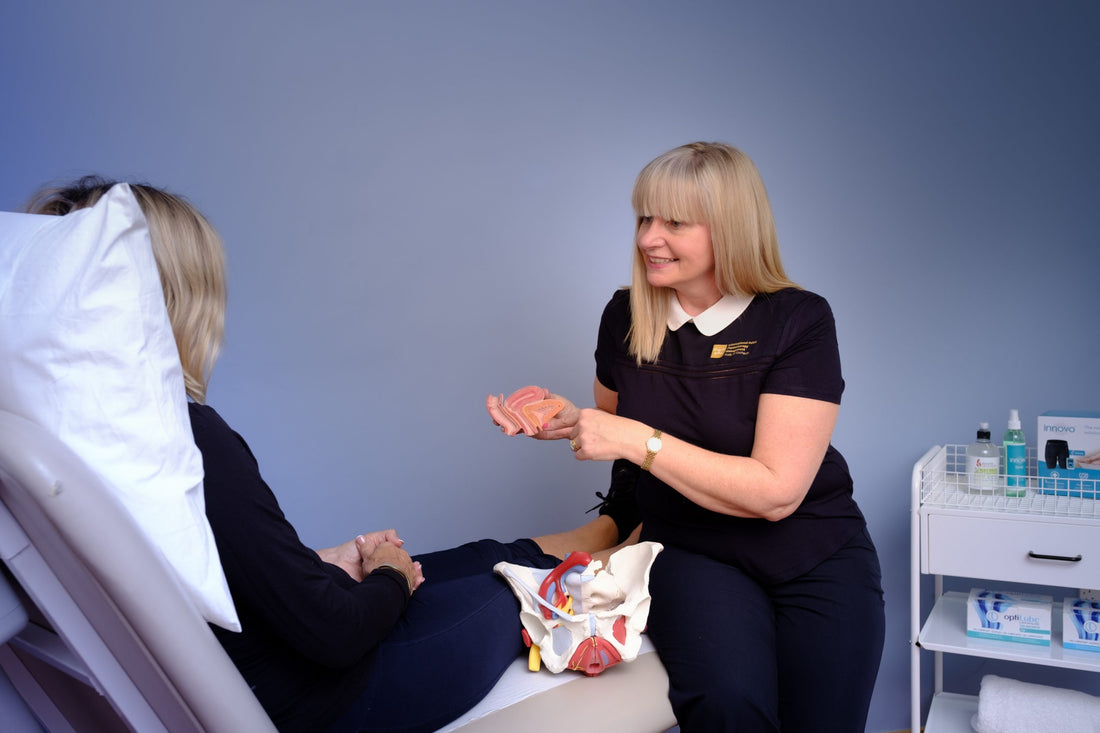Aoife Ní Eochaidh is a Clinical Specialist Physiotherapist. She operates International Pelvic Physiotherapy Management (www.ippm.ie).
Aoife teaches and conducts research and is a peer-nominated Medico-Legal Pelvic Physiotherapy Expert, providing services in the UK and Ireland.
Aoife is a regular contributor to national media broadcasts and publications.
Recently, KeyForHer met with her to discuss how menopause impacts the pelvic floor– and what steps you can take to manage these changes.
I’m a physiotherapist with a clinical speciality in women's and men's health. I operate International Pelvic Physiotherapy Management, located at the Bon Secours in Galway.
We provide a portfolio of services for the pelvic floor and see patients in our clinic and online. We also have training and consultancy services advising other physiotherapists, hospitals, and clinics; we've helped set up specialist pelvic services in Switzerland, Dubai, and London.
We come across around 20 different conditions when people come in to see us. Four or five will relate to the bladder; four or five to the bowels. There will be prolapse, natural dysfunction, or pain. But getting the pelvic floor operating in the normal range tackles many of these problems quickly.
I never thought I’d end up being an authority on the pelvic floor. It’s certainly not a focus during most undergraduate degrees. And there are sadly very few pelvic physio specialists globally – never mind, just in Ireland. But once I qualified, I recognised how important the pelvic floor is – and how poor pelvic floor health can impact so negatively on your day-to-day life. So much starts with solid and well-functioning pelvic floors!
Whether you have problems or not – and regardless of what life stage you’re in – everyone should be training their pelvic floor muscles daily. It should be a lifestyle habit, a bit like brushing your teeth. It’s never too late to start, either.
If you’re wondering what exactly your pelvic floor does – it has four main parts to normal function: muscle bulk (or muscle thickness); fitness and endurance (the number of muscle contractions a person can do); squeeze strength; and muscle movement.
The hormonal changes that happen before and during menopause cause atrophy – or loss of muscle mass – and this is why you might start to experience pain during sex, incontinence, vaginal dryness, and prolapse. Gaining weight can worsen it, especially if you have a BMI over 30. In turn, all these can result in related problems like sleep disturbance or issues with your gut. It becomes a cycle, and I’ve seen women close-to housebound because of the symptoms they’re enduring.
Sometimes a woman who might have experienced third or fourth-degree tears during childbirth finds that when menopause hits maybe 20 years later, the hormonal changes that are taking place can mean her body is particularly vulnerable to pelvic problems. Birth trauma – if you had a forceps delivery, for example – can also mean nerve damage which again can result in further considerations once you’re in menopause.
Why it helps
But it’s not all doom and gloom – 75% of women respond to the exercises a specialist physio can recommend. You can see improvements in as little as four weeks too. Most people see significant improvements after three months. The positive impact of looking after your pelvic floor – at all stages of life but especially during menopause – can be huge.
For others who need more help, electrical stimulation is used in pelvic physiotherapy and is very effective. It's not a new technique; these kinds of technologies have been around since about 1950, but, of course, they’re improving all the time. When your muscles are really weak, you will need a little bit of electrical stimulation and your pelvic floor training.
The electrical stimulation does two things: it repetitively contracts and relaxes your muscles, a high volume of times perfectly. That has a big training effect. So in a 20-minute session, the floor can be contracted and relaxed about 200 times. Secondly, electrotherapy also stimulates the nerve supply – which gets the muscles working better, particularly in those women who have had forceps delivery or a history of nerve damage.
We need to keep talking about this and raising awareness – so I’m delighted that KeyForHer is taking such an active role in the conversation around women’s health. That discussion alone makes things a bit easier for a lot of us; women who find it hard to talk about their experiences of menopause – mainly if the side-effects of menopause include the likes of incontinence or losing bowel control – need to be supported, they need to know there are solutions. They shouldn’t just accept that their body is changing for the worse. There are options. There is support.
See courses.homepelvicroutines.com for information on e-learning courses.
You can learn more via Twitter too, @pelvicexpert or by visiting www.ippm.ie













